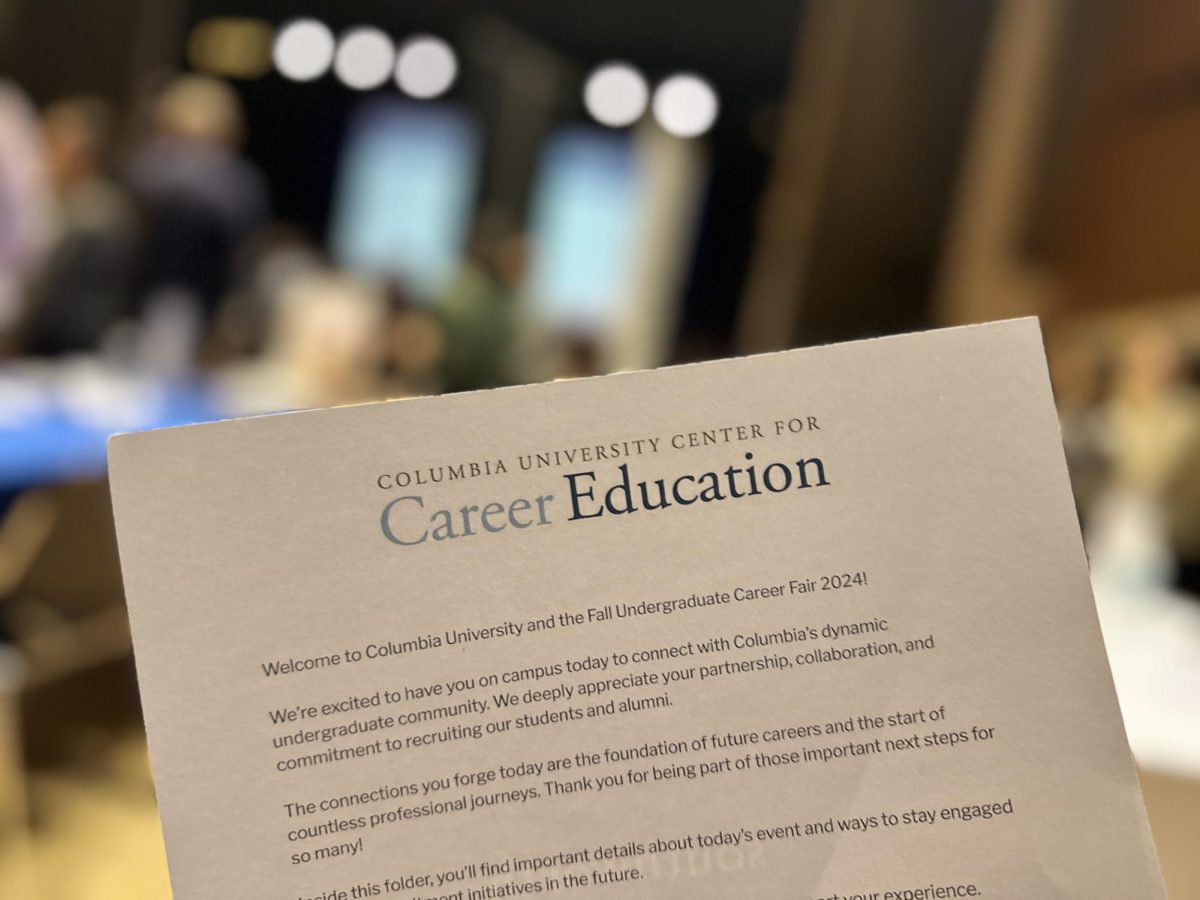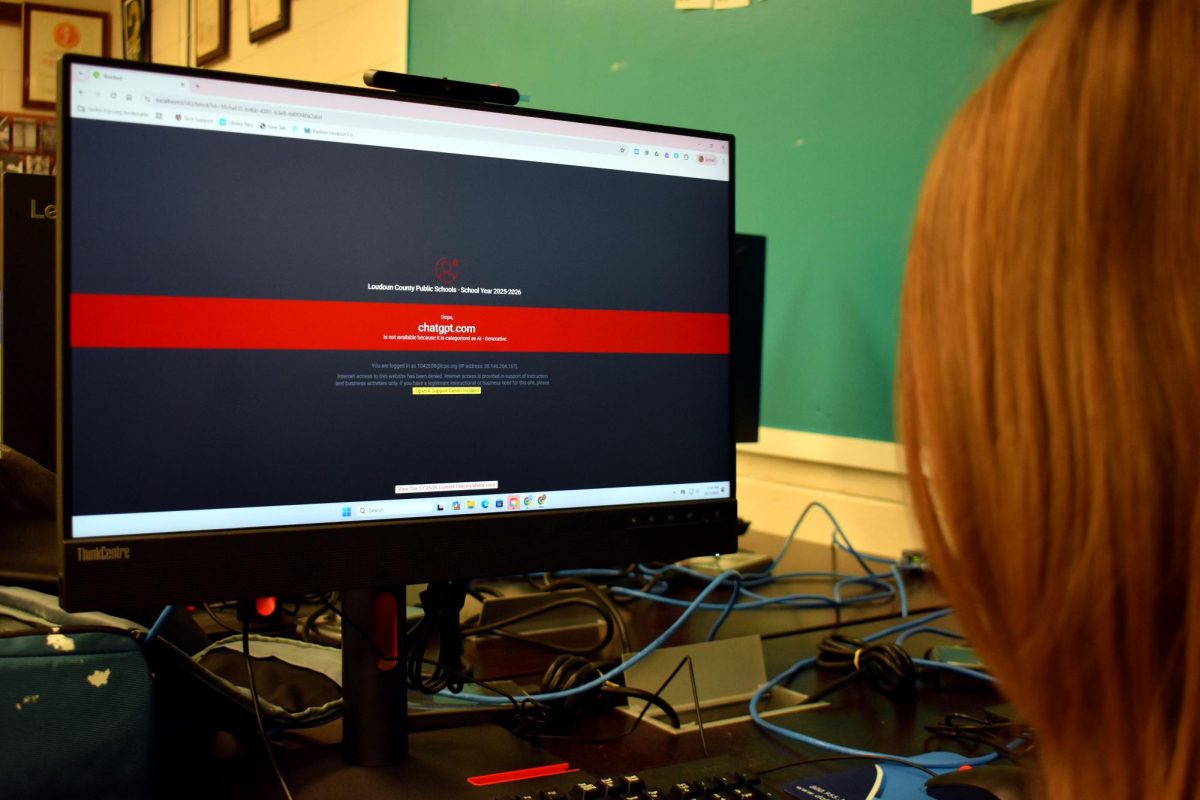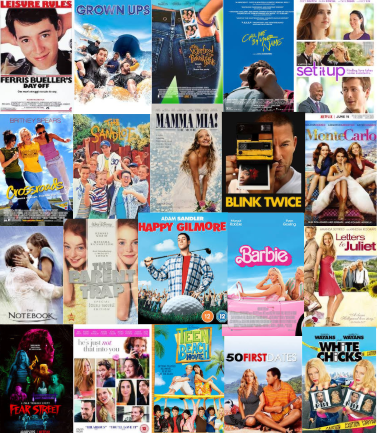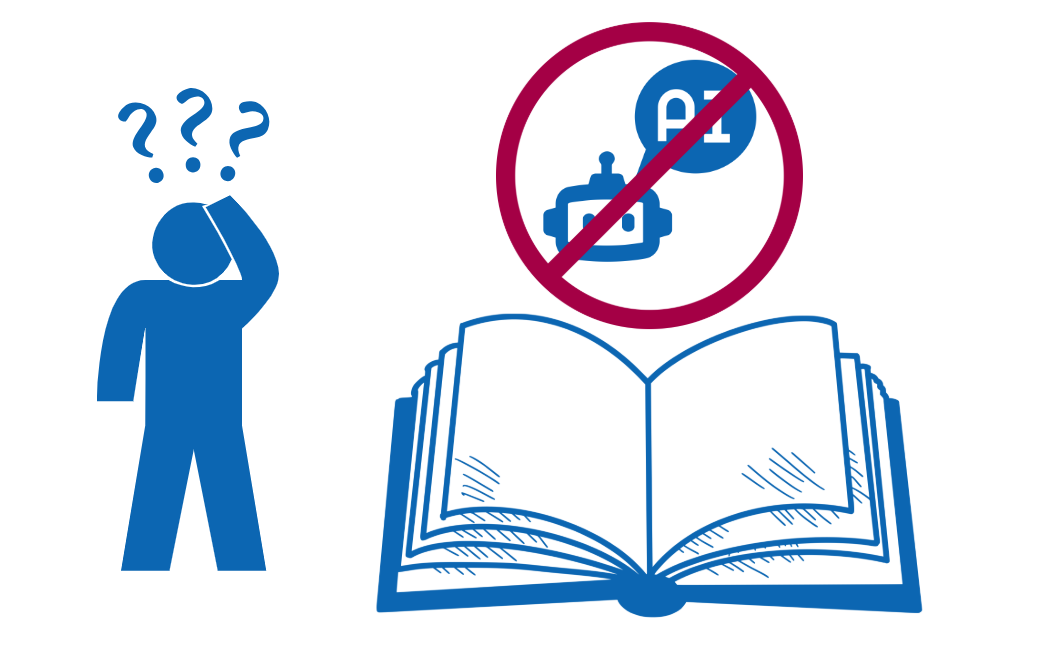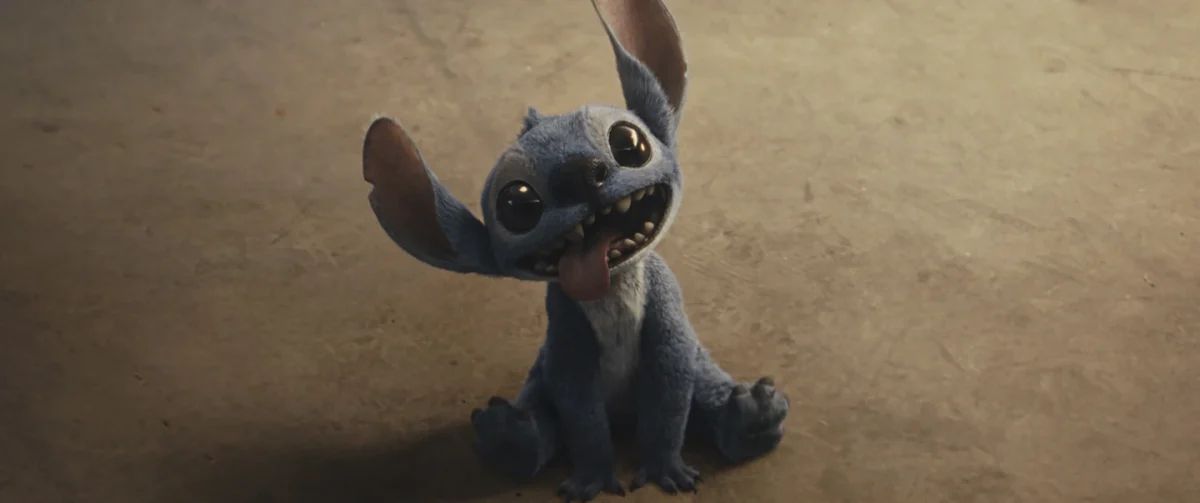In terms of school issued fairs, high schoolers, especially our upperclassmen, would likely find themselves focused on college fairs since that is the next stepping stone in their realm of education.
However, gaining a glimpse into life past education and into the professional world is just as important for one’s professional trajectory in the long run.
I was catapulted into the space of college life, internships, and careers as a whole through assisting my father in recruiting undergraduates for a fellowship on behalf of his organization: New Lines Institute, at the Columbia University Undergraduate Career Fair.
After attending the fair on Oct. 11, two things were made apparent to me:
- Capitalize on your passions early for resume building
- The way fields and majors overlap and connect with one another
The auditorium at the Alfred Lerner Hall Auditorium was full of rows of tables and chairs, each table for an organization looking to hire/recruit students.
After helping set up our table, the auditorium began to fill up with undergraduates at around noon.
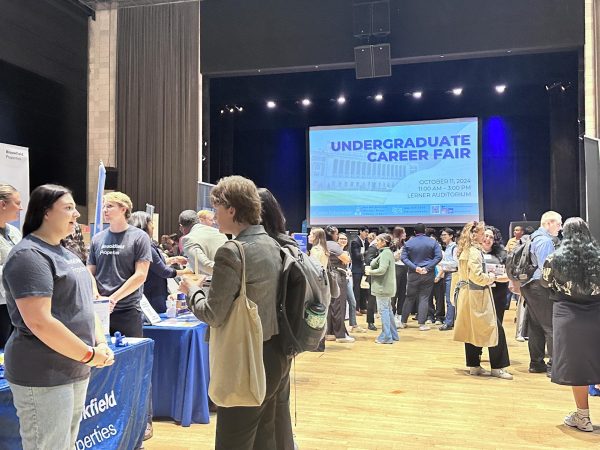
Capitalize on your interests/talents
Most organizations recruiting at the fair, including ours, were looking for applications from seniors in college exclusively; this didn’t discourage the abundance of juniors present at the fair, however.
And while my father did most of the talking about the fellowship, I was keeping the table organized with all the papers and resumes belonging to eager seniors.
When gauging a closer look at some of these resumes, I was bombarded with how each student had a multitude of experience in fields related to their majors, some of this experience dating back to their time in high school.
I did bear in mind that these resumes belonged to high-achieving students attending an ivy-league institution. Nonetheless, one pointer remained clear:
Building a resume early on is essential for long term success when applying for internships and jobs, regardless of which educational institution one aims to pursue.
Your trajectory into the professional world is a long road, one that truly starts when you find passion/interest in a certain field. This interest could then evolve into experience and various activities, going on to shape the decisions made in one’s professional life such as declaring a major come freshman year.
Ultimately, the extracurriculars you are pursuing or wish to pursue as a highschooler have an effect on your overall professional trajectory — a reminder that life is indeed a domino effect, if you will.
And it’s no surprise that many find that passion for a particular field in high school. Take advantage of that interest, create a cohesive extracurricular record by aligning it with your interests and talents.
Don’t get me wrong, items on a student’s resume don’t have to be full of internships at government agencies or being founder of an NGO. Milder activities that equally display your dedication and passion for an activity are just as acceptable.
These activities would include starting a club, being an editor of any school issued publications, leading a book club, and the list goes on.
While most of the experience on the students’ resumes were during their time as an undergraduate at Columbia, almost all of them had a few that were accomplished in high school. Reading their full resume from start to finish made it clear to identify the cohesive trajectory which led them to their current majors.
Gaining a glimpse at resumes from students on the cusp between education and the professional world was a reminder for me, and all high schoolers, to lean in on their interests and talents, however many they may be.
Who knows? Those interests could manifest themselves into meaningful activities, such activities that could be the start of a stellar resume to showcase when applying for jobs and internships.
Overlapping of fields
My father and I were representing a think tank centered on geopolitical
analysis, and to reiterate the answer to a question a political science major asked: Yes, the most typical majors we would look for are in the realm of political science international relations.
There were many students, however, interested in our fellowship who were majoring in Economics, English, Intelligence Analysis, and the list goes on. And it is safe to say they were equally as interested and possessed skills vital to the position we were offering.
As seniors are clicking their intended major before sending applications, we may feel that these decisions are binding in regards to the next four years and beyond.
While this is true to some extent, this career fair opened my eyes to the ways majors and differing skills overlap and connect. I can recount a specific English Literature major who was very keen on learning more about how to analyse the world and its affairs — the key learning objective offered by my father’s fellowship.
We may have a very specific career outlined in our heads, but I think we should save some space to note that our majors aren’t a strict description of the type of job we’ll land. Skills and talents overlap, and majors often blend with others in both similar and different fields. Your major may give you the skills for another job entirely than the one you had in mind. Or, it could serve as a stepping stone onto another area of education you wish to pursue.
Your career and professional potential is not bound by the parameters of your chosen major. The skills and talents you capitalize on right now may end you up in an entirely different area of expertise than expected.
Consider all options, at all times — not just as a high schooler, but even in college when you’re working towards a degree.

